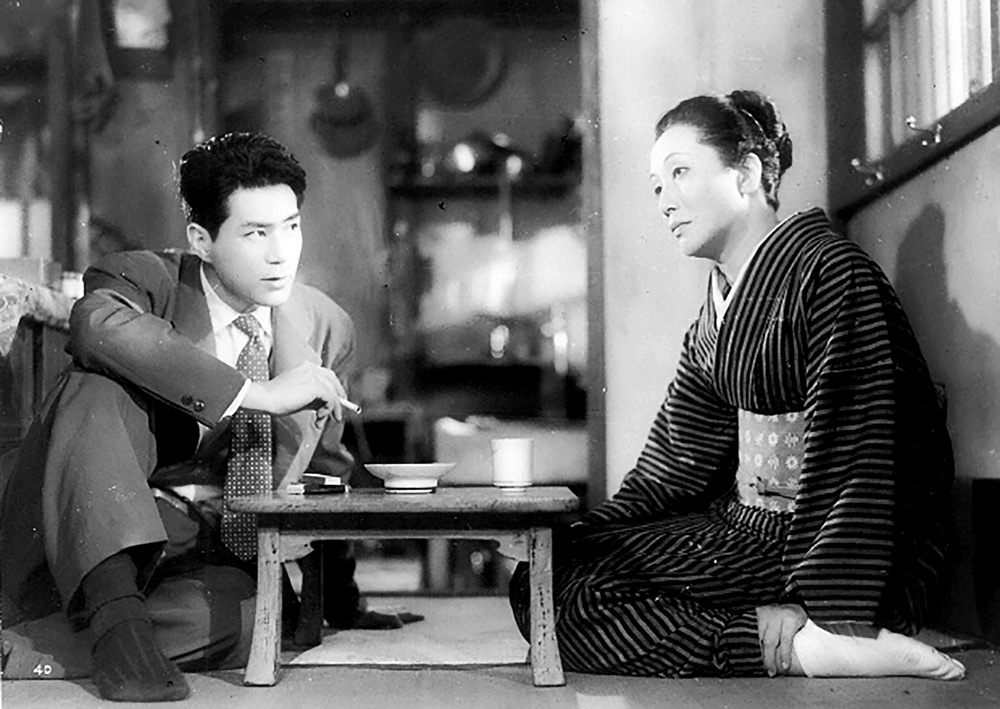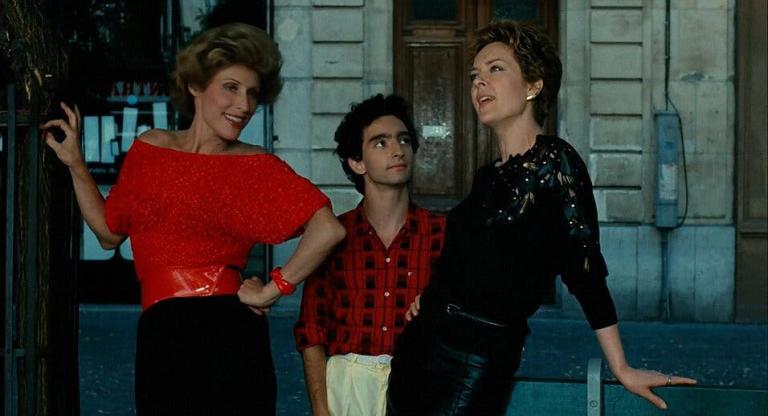Late Chrysanthemums (1954) lays bare the emotional toll of a life shaped by transactional relationships with its story about four retired geisha navigating the hardships of post-war Japan while brooding on the past. Kin (Haruko Sugimura), now a successful moneylender, coldly rejects her former lover’s pleas for loans while demanding timely repayment from the women around her. Tamae (Chikako Hosokawa) struggles with intense migraines and disappointment in her son, a kept man supported by an older lover. Tomi (Yūko Mochizuki) laments her daughter’s impending marriage to an older man as she drowns in gambling debts and jealousy for Kin’s financial success, which she attributes to her own past misfortunes. Nobu (Sadako Sawamura) runs a restaurant with her husband, where the women spend time together. As they grapple with aging, economic survival, and fading relationships, the film paints a bleak yet incisive portrait of disillusionment, where financial necessity erodes personal bonds and the past lingers more as a source of bitterness rather than nostalgia.
Financial obligations strangle these women’s relationships with resentment. When Kin’s former lovers come to visit her, they ask for money. She rejects them with cold pragmatism, calling them men “vampires” despite profiting off the desperation of those around her. Her moneylending embodies the dehumanizing logic of capitalism as it begins to seep into post-war Japan, becoming a dominating system where economic survival demands emotional detachment. Tomi’s late payments and desperate attempts to guilt trip Kin into giving her support reveal the ways economic precarity can warp kinship into another form of bargaining. Debilitating migraines keep Tamae from working as much as she needs to stay afloat and she’s forced to accept money from her son, given to him by his married mistress in exchange for his services. Tamae and Tomi bemoan their children’s choices together, filled with a sense of betrayal. Their collective suffering underscores the cruel irony of their struggle: the very systems that promised them stability—money, family, love—only deepen their isolation, leaving them stranded between a merciless present and a bitterly remembered past.
Like most of Mikio Naruse’s films, Late Chrysanthemums refuses sentimental resolution. Instead, it presents a world where survival demands emotional detachment: the past is a chain, and even the deep bonds of family and lifelong friendships are little more than another form of debt. Once beautiful, now fading, Kin, Tamae, Tomi, and Nobu cling to dignity in a world that has moved on without them.
Late Chrysanthemums screens tomorrow afternoon, July 6, at Metrograph on 35mm as part of the series “Mikio Naruse: The World Betrays Us.”



